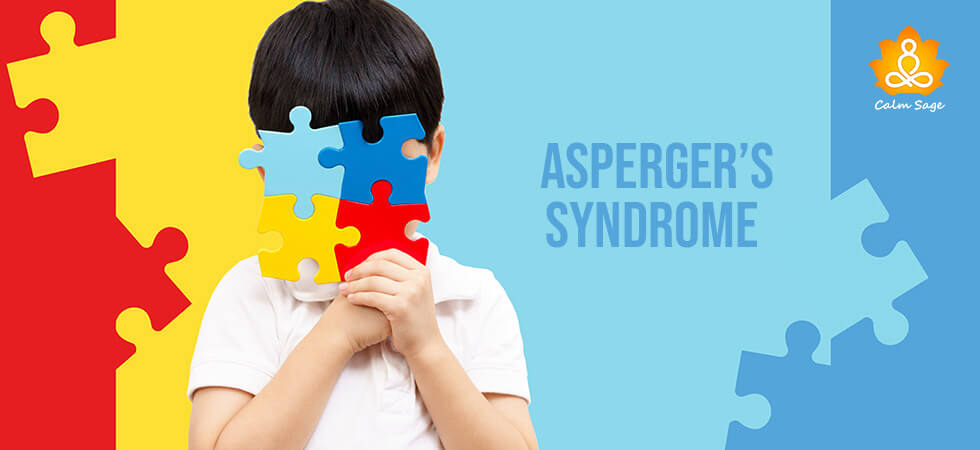Asperger’s Syndrome: What Is It, Its Symptoms, Causes, Treatment, And More

Autism spectrum disorder (ASD) is a broad term that can shelter many types of autism and other neurodevelopmental disorders. However, in modern diagnosis, Asperger’s syndrome is now classified under the autism spectrum rather than a standalone diagnosis.
This change in the classification happened in 2013 with the latest release of the Diagnostic and Statistical Manual of Mental Disorders (DSM-5). Despite the change in classification, Asperger’s diagnosis is still relevant to many people.
But what is Asperger’s syndrome? Is it the same as autism?
Well, in simple terms, Asperger’s syndrome is a developmental disorder that falls under the many types of Autism Spectrum Disorder. Children and adults diagnosed with Asperger’s have a difficult time with social conversations, social behaviors, and thinking.
Let’s take a closer look at what Asperger’s syndrome, the symptoms, the causes, the areas affected, and how to treat Asperger’s syndrome.
What Is Asperger’s Syndrome?
Autism exists on a broad spectrum that includes a variety of sensory, social, and communication differences and disorders. Each disorder or difference has a different way of presenting and depends greatly on the person on the autism spectrum.
In the DSM-5, there are three levels of autism including:
- Requiring Support
- Requiring Substantial Support
- Requiring Very Substantial Support
Asperger’s syndrome falls under the Level 1 or Requiring Support category. While people with Asperger’s may not need help with their daily living, they might need support when it comes to social interaction and communication.
One of the aspects that makes Asperger’s different from other types of autism is that people with Asperger’s have almost the same level of intelligence and oral skills as Neurotypical children and adults.
Named after the Austrian physician, Hans Asperger, this disorder has its own strengths including significant focus, the ability to identify patterns, and strong attention to detail. Anyone can have autism but people still have a hard time getting a diagnosis.
Fact: Did you know that the CDC estimates 1 in every 68 children to have ASD? It’s that common!
Also Read: Is Autism Overdiagnosed? This Is What Studies Suggest
Asperger’s Syndrome Symptoms
Each individual with Asperger’s syndrome has a different experience. However, few common characteristics can be found in people with Asperger’s. Asperger’s syndrome symptoms can include:
- Difficulty in social interactions
- Difficulty in communicating
- Having a repetitive pattern of activities, behavior, and interests
- Problems with movements
- Hyper focus
- Trouble understanding social cues
- Difficulty reading facial expressions or body language
- Difficulty with coordination
The aspects more affected by Asperger’s syndrome include:
1. Social Interaction
Asperger’s can make social interaction difficult as people with Asperger’s have a hard time understanding other people, reading others’ emotions, and expressing their own feelings the way others do. This can cause misinterpretation and people might begin to think that the one with Asperger’s is being insensitive or inappropriate.
2. Communication
People with Asperger’s have trouble interpreting others’ body language and facial expressions which can also cause misinterpretation and lack of rhythm in communication. In some types of autism disorders, there are language differences and while people with Asperger’s know how to communicate, they may face trouble understanding jokes, sarcasm, and abstract ideas.
3. Repetition
People with Asperger’s have a narrow-topic mind. For example, they are well-versed in topics such as species of plants, names of the stars, maps, subway routes, etc. Here, these individuals know everything there is to know about such topics and want to talk about them in every conversation. Their topics might change with years but the intensity of the interest remains as it is. It’s also a common thing for people with Asperger’s to have a routine and any change in their routine may cause them anxiety.
What Causes Asperger’s Syndrome?
There are no known factors for what causes autism spectrum disorder, however, some common factors that can play a role include:
- Genetics: Having a family member with ASD is more likely to pass on the disorder.
- Environmental Factors: Factors like viral infections, prenatal issues, and even air toxins can cause ASD.
- Brain Development: In imaging studies, it has been found that structural and functional differences in the brain can also cause Asperger’s.
Can It Be Treated?
There is no specific cure for ASD and it’s not something that needs treatment. ASD, including Asperger’s, is seen as a part of one’s identity rather than something that needs to be “cured”. ASD and Asperger’s may cause anxiety, stress, and depression so many people look to help reduce the symptoms of those issues than treating their ASD.
Learning to communicate and interact with non-autistic people can be emotionally and mentally draining on people with Asperger’s and to help with that, they can choose therapy.
Therapy can help address social, communication, and behavioral issues that may cause one anxiety in their daily life. Therapy approaches that can help with this can include:
- Cognitive-Behavioral Therapy (CBT)
- Sensory Integration Therapy
- Social Skills Training
- Stress Management
- Anger Management
- Occupational Therapy
- Speech Therapy
Other self-help approaches can include:
- Melatonin, as sleep disturbances often co-occur with Asperger’s syndrome
- Music and art therapy can help with communication and social difficulties
- Massage therapy can help reduce anxiety, and sensory symptoms, and also help with stress management in Asperger’s syndrome
- Joining support groups to learn more about Asperger’s and how to support a loved one or to learn how to live with Asperger’s
For many, getting an Asperger’s or Autism diagnosis can be a relief as it helps them make sense of their daily experiences and challenges. For an official diagnosis, it is recommended that you seek a psychologist, physician, or psychiatrist.
If you’re worried about your child having Asperger’s syndrome or them being on the autism spectrum, then you can consult a healthcare professional or log on to these resources for support and self-education:
I hope this article helped you understand what Asperger’s syndrome is, the symptoms of Asperger’s, the causes, which areas of life it affects, and how to cope with Asperger’s syndrome.
For more, you can write to us at info@calmsage.com or DM us on social media. You can also share your thoughts on the same in the comments section below!
Take Care!




















